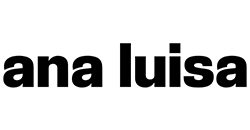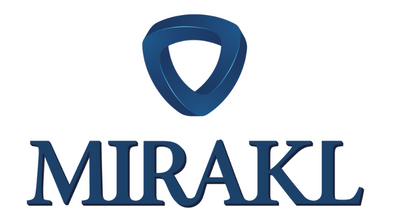20+ Native Integrations
Every sales channel.
One ERP.
Orders sync in under 5 seconds. Inventory updates across all channels. Revenue recognized when you ship, not when customers pay.
Trusted by leading omnichannel brands












Not just order sync.
Complete ERP integration.
Basic apps move orders. Fulfil connects your entire business.
Basic marketplace apps
- Sync orders and inventory. That's it.
- No accounting integration
- Manual settlement reconciliation at month-end
- Break at scale
Fulfil's native integrations
- Orders, inventory, fulfillment, revenue, GL posting. Complete workflow.
- Revenue recognition per channel when you ship
- Automatic settlement reconciliation with fee breakdown
- Handle 30,000+ orders per day per channel
Why Channel Integrations in Fulfil vs. Middleware Platforms
Native ERP integrations, not another platform to manage
| Feature | Native Channel Apps | Middleware Platforms | Fulfil ERP |
|---|---|---|---|
| Scope | Basic order and inventory sync | Multi-channel order and inventory aggregation | ✓ Complete ERP integration: orders, inventory, fulfillment, accounting |
| Accounting | No accounting integration | Limited accounting, requires separate tools | ✓ GAAP-compliant revenue recognition and settlement reconciliation built-in |
| System complexity | Each app separate | Unified dashboard, but another platform to manage, another cost center taxing your revenue | ✓ Native integrations to your ERP. One system. |
| Scale | Breaks at high volume | Handles high volume but creates another layer in your Frankenstack | ✓ Built for scale as part of your ERP |
Native apps work until you hit 5+ channels. Then you're juggling disconnected systems. Middleware consolidates channels but creates another platform, another subscription, another cost center taking a cut of your revenue. Fulfil connects all channels to your complete ERP in one system.
E-Commerce Platforms
Direct-to-Consumer Platforms
Bi-directional sync for orders, inventory, products, and customer data.

Shopify
The gold standard integration. Official Shopify app with complete ecosystem support including POS, Markets, and Collective.
Why Fulfil vs. Shopify alone:
- • Revenue recognized on shipment, not checkout (GAAP-compliant)
- • Shopify Payments settlement reconciliation with fee breakdown
- • Multi-location inventory by sales channel
- • Complete order-to-cash workflow in your ERP

BigCommerce
Enterprise e-commerce platform integration with advanced order handling and multi-location support.
- Post-checkout line item additions
- Automatic listing discovery
- Order cancellation sync

Magento 2
Direct API integration for high-volume Magento stores with flexible order state mapping.
- Configurable order state mapping
- Multi-location support
- Tax creation from channel
Major Marketplaces
Scale across global marketplaces
Automated fulfillment, settlement reconciliation, and multi-region support.
 Enterprise Ready
Enterprise Ready
Amazon Seller & Vendor Central
Enterprise-grade Amazon integration with FBA warehousing, multi-region support, and automated settlement reconciliation.
Why Fulfil vs. Amazon Seller Central alone:
- • Track FBA as a warehouse in your ERP (see FBA inventory alongside your warehouse inventory)
- • Automatic settlement reconciliation (match payments to invoices, book fees to GL)
- • Multi-region consolidation (see US + UK + Germany Amazon performance together)
- • True profitability (revenue minus FBA fees minus COGS = actual margin)

Walmart Marketplace
Seller-fulfilled and WFS (Walmart Fulfillment Services) integration with multi-location inventory.
- Both seller-fulfilled and WFS orders
- Multi-location inventory export
- Settlement tracking

eBay
Automatic listing discovery and fulfillment for one of the world's largest marketplaces.
- Product/variant listing discovery
- Inventory and order status sync
- Partial fulfillment support

Etsy
Native Etsy integration for handmade, vintage, and craft supplies marketplace.
- Automatic order import
- Product listing discovery
- Fulfillment with tracking

TikTok Shop (US & Global)
Connect to the fastest-growing social commerce platform with FBT (Fulfillment by TikTok) support.
- US and international shops
- Fulfillment by TikTok (FBT)
- Multi-location inventory

Wayfair
Home goods marketplace integration with part number mapping and inventory sync.
- Unfulfilled order import
- Part number mapping
- Order status and tracking
Ready to see your channels connected to accounting?
Join 400+ brands processing $10B+ in annual GMV through Fulfil.
See How It Works
Revenue recognized when you ship.
Not when customers pay.
Most channel integrations just sync orders. Fulfil handles proper accounting.
How revenue recognition works
- 1. Order comes in, payment captured. Booked as Deferred Revenue (liability).
- 2. Warehouse ships order. Revenue recognized, COGS matched.
- 3. Settlement arrives. Cash in bank, fees expensed.
Channel-specific settlement reconciliation
- Amazon: Match settlements to invoices, book FBA fees, track reimbursements
- Faire: Reconcile actual vs. estimated shipping costs, track deductions
- Shopify: Reconcile Shopify Payments settlements with fee breakdown
Finance teams see true profitability by channel after all fees. No manual reconciliation at month-end.
Wholesale & B2B
B2B and wholesale. Not just DTC.
Most multi-channel tools focus on Amazon and eBay. Fulfil handles wholesale platforms with different workflows.
Wholesale-specific capabilities:
- Payment terms: Net 30/60 payment terms for wholesale orders (not immediate capture)
- Payout reconciliation: Wholesale platforms take cuts and deductions. Fulfil reconciles automatically.
- Actual shipping costs: Faire estimates shipping, then charges actual. Fulfil tracks both.
- Custom pricing: Different prices by wholesale customer, volume discounts, trade terms
Connected platforms:
Connect Faire, NuORDER, Shopify B2B, RepSpark, and custom B2B channels. All with proper wholesale accounting.
See true wholesale profitability after all platform fees and deductions.
B2B Platform Integrations

Faire
Direct integration with accurate wholesale accounting and actual carrier costs for shipping revenue.
Why Fulfil vs. Faire alone:
- • Track Net 30/60 payment terms properly (not immediate revenue recognition)
- • Reconcile Faire's cut and deductions automatically
- • Match estimated vs. actual shipping costs
- • See true wholesale profitability after all platform fees
- Actual vs. estimated shipping costs
- Payout reconciliation
- Multi-location fulfillment

Shopify B2B
Native B2B commerce integration with company profiles, payment terms, and wholesale catalogs.
- Company account management
- Net payment terms support
- Wholesale catalog sync

NuORDER by Lightspeed
B2B wholesale platform integration with product listing sync and order management.
- Product listing discovery
- Paid and unpaid order import
- Inventory synchronization

RepSpark
B2B wholesale commerce platform integration.
- Customer and product sync
- Sales order management
- Inventory export
Brandwise
B2B platform with SFTP-based order import and Stripe payment processing.
- SFTP-based order import
- Stripe payment integration
- Order and return processing

Konnektive
Subscription commerce platform with automatic order import and payment processing.
- Subscription order import
- Payment booking
- Order status sync

MarketTime
B2B ecommerce platform integration.
- Order import
- Product listing import
Dropship & Retail EDI
Enterprise dropship and retail partnerships
Modern EDI integrations that replace complex file-based systems with API-driven automation.

DSCO (Rithum)
Modern EDI platform replacing traditional file-based systems. Connect to major retailers through one API.
- PO (850), Inventory (846), ASN (856), Invoice (810)
- Customizable packing slips per retailer
- Comprehensive testing workflow

Mirakl Seller Network
One platform connecting to 450+ retailer marketplaces including Macy's, Nordstrom, Best Buy, H&M, and more.
- Access to premium retail partnerships
- Retailer-specific branding and packing slips
- Centralized inventory across all retailers
What's included
Channel integration capabilities
Order Management
- ✓ Orders sync in <5 seconds
- ✓ Bi-directional status updates
- ✓ Returns and refunds automation
- ✓ Fraud detection handling
- ✓ Payment reconciliation
Inventory
- ✓ Updates every 60 seconds
- ✓ Multi-location support
- ✓ Available to Promise
- ✓ Restock date management
- ✓ 3PL and FBA tracking
Accounting
- ✓ Revenue on shipment
- ✓ Settlement reconciliation
- ✓ Tax jurisdiction management
- ✓ Multi-entity support
- ✓ Cost center allocation
Products
- ✓ Automatic listing discovery
- ✓ Smart product matching
- ✓ Duplicate prevention
- ✓ Attribute mapping
- ✓ Bulk operations
Fulfillment
- ✓ Shipping confirmations
- ✓ Carrier mapping
- ✓ Multi-warehouse routing
- ✓ 3PL integration
- ✓ Drop shipping support
Monitoring
- ✓ Alerts within 60 seconds
- ✓ Slack integration
- ✓ Exception logging
- ✓ Automated retry logic
- ✓ Health dashboards
Real scenarios.
Growing brands.
DTC brand expanding to marketplaces
$5M on Shopify, expanding to Amazon ($2M) and Walmart ($500K).
- All three channels sync to Fulfil
- Inventory updates to all channels when receiving shipments
- Finance discovers Amazon is less profitable than Shopify after FBA fees
Wholesale + DTC
DTC on Shopify, wholesale through Faire to 200 boutiques.
- Shopify orders ship with immediate payment capture
- Faire orders ship with Net 30 terms (Faire takes 15%)
- Track profitability: high-margin DTC vs. low-CAC wholesale
Multi-region Amazon
Selling on Amazon US, UK, Germany, France, and Japan.
- Consolidate all regions: total GMV, FBA fees, profitability by marketplace
- Japan has highest margins but lowest volume. Data-driven expansion.
B2B platform portfolio
Selling to retailers via Faire, NuORDER, and Shopify B2B.
- Each platform has different pricing, terms, and fees
- Track actual profitability by platform after all deductions
Questions? Answers.
Do I need separate subscriptions for each marketplace?
No. Connect as many sales channels as you want. All included with your Fulfil subscription. You still pay each marketplace their fees (Amazon referral fees, Etsy listing fees, etc.), but Fulfil charges nothing extra for channel integrations.
How long does it take to set up channel integrations?
Most channels connect in under 30 minutes. Authorize the connection, map settings, start syncing. Complex integrations like multi-region Amazon or EDI channels take a few weeks for testing and validation.
What happens to my existing orders and products?
Historical orders stay in the originating platform. Going forward, new orders sync to Fulfil automatically. Products can be imported from existing marketplace listings or created fresh in Fulfil and pushed to channels.
Can I control which inventory shows on each channel?
Yes. Set rules for inventory allocation by channel. Show full inventory on Shopify, reserve 20% for Amazon, exclude certain warehouses from specific channels. Inventory updates to all channels based on your rules.
What if an integration fails or stops syncing?
Fulfil monitors all integrations continuously. If a sync fails, you get a Slack alert within 60 seconds. Automatic retry logic attempts to resolve transient issues. Support team receives alerts for persistent failures.
Built for scale. Proven at scale.
Orders sync in under 5 seconds. Automatic retries. Error alerts via Slack within 60 seconds.
Ready to connect all your sales channels?
See how Fulfil's native integrations can automate your omnichannel operations
Request a Demo